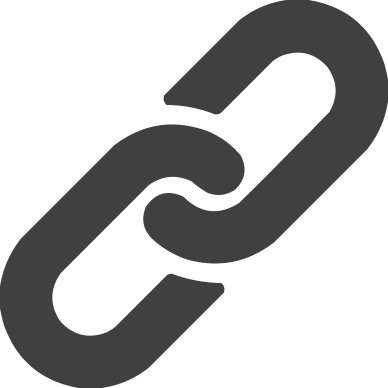

CRM Analytics vs. Data Cloud – Which Is Right for Your Business?
In the world of Salesforce, businesses often find themselves choosing between CRM Analytics and Data Cloud to leverage data for insights and decision-making. Both are powerful tools, but their core functions, capabilities, and ideal use cases differ significantly. Let’s dive into a comparison of these two tools and explore how Winfomi, a Salesforce consulting leader, helps businesses make the right choice.
What is CRM Analytics?
CRM Analytics (formerly Tableau CRM) is an advanced analytics platform native to Salesforce that enables businesses to analyze and visualize their CRM data. It empowers users with powerful dashboards, predictive insights, and seamless integration with Salesforce data, making it ideal for decision-making within the Salesforce ecosystem.
Key Features:
Native Integration with Salesforce: CRM Analytics connects seamlessly with your Salesforce CRM, offering real-time data analysis and reporting.
Actionable Insights: It provides users with predictive analytics and recommendations using AI-driven tools like Einstein Discovery.
Customizable Dashboards: Build intuitive and visually appealing dashboards to track business metrics, KPIs, and performance.
Mobile Accessibility: CRM Analytics offers a mobile-friendly interface, making it easy to access insights on the go.
What is Data Cloud?
Data Cloud (formerly Customer Data Platform, CDP) is designed to bring together large volumes of data from various sources, not just Salesforce, into a unified customer profile. It is built to handle the complexity of data from multiple channels, allowing businesses to create personalized customer experiences through real-time data activation.
Key Features:
Unified Customer Profile: Data Cloud consolidates data from multiple touchpoints (e.g., email, website, transactions) into a single customer profile, offering a 360-degree view of customers.
Data Agnostic: Unlike CRM Analytics, Data Cloud is not limited to Salesforce data. It pulls data from multiple sources, including marketing platforms, ERP systems, and third-party applications.
Real-Time Data Activation: With Data Cloud, businesses can leverage real-time customer data for personalized marketing, product recommendations, and customer journeys.
Advanced Audience Segmentation: It enables the creation of dynamic customer segments based on behavior, preferences, and purchase history.
Comparing CRM Analytics and Data Cloud
| Feature | CRM Analytics | Data Cloud |
|---|---|---|
| Primary Focus | In-depth analysis and reporting of Salesforce CRM data | Unifying and activating customer data across platforms |
| Data Sources | Primarily Salesforce CRM data | Multiple sources including Salesforce, ERP, websites, etc. |
| Customer View | Focused on CRM-based insights and predictive analytics | 360-degree customer view with real-time activation |
| AI & Machine Learning | Einstein Discovery for predictive analytics | Real-time segmentation and activation with AI capabilities |
| Best For | Sales, Marketing, Service teams for CRM data analysis | Marketing, Product teams for personalized experiences |
| Scalability | Highly scalable within Salesforce ecosystem | Scales across various platforms, ideal for complex data environments |
When to Choose CRM Analytics?
Salesforce-First Companies: If your business primarily operates within the Salesforce environment, CRM Analytics is a natural fit. Its deep integration with Salesforce allows you to derive powerful insights from sales, service, and marketing data with minimal setup.
Predictive Insights: For businesses looking to forecast trends, identify opportunities, or get AI-driven recommendations, CRM Analytics, combined with Einstein Discovery, offers a strong solution.
Customizable Dashboards: Teams seeking to create detailed, customizable dashboards for tracking performance metrics will find CRM Analytics invaluable.
When to Choose Data Cloud?
Unified Customer Experience: If your business relies on data from various sources beyond Salesforce—such as third-party applications, ERP, or marketing platforms—Data Cloud offers the ability to unify and activate that data in real-time.
Omnichannel Personalization: For businesses focused on providing personalized customer experiences across multiple touchpoints, Data Cloud allows you to segment and target audiences based on their real-time behavior.
Real-Time Data Activation: If your business requires real-time data activation to optimize marketing efforts or product recommendations, Data Cloud’s capabilities make it the right choice.
How Winfomi Helps You Decide
At Winfomi, we understand that choosing between CRM Analytics and Data Cloud depends on your business’s unique needs and data strategy. Our team of experts will work closely with you to evaluate your current data environment, future goals, and technical requirements to recommend the right solution. Whether it’s leveraging CRM Analytics to maximize Salesforce data or implementing Data Cloud for a comprehensive customer experience strategy, we ensure the solution aligns with your business objectives.
Conclusion
Both CRM Analytics and Data Cloud offer powerful capabilities, but they serve different purposes. CRM Analytics excels at Salesforce-driven insights and AI predictions, while Data Cloud is designed for unified customer experiences across multiple platforms. At Winfomi, we specialize in helping businesses harness the full potential of both tools, ensuring data-driven success at every stage of your Salesforce journey.




